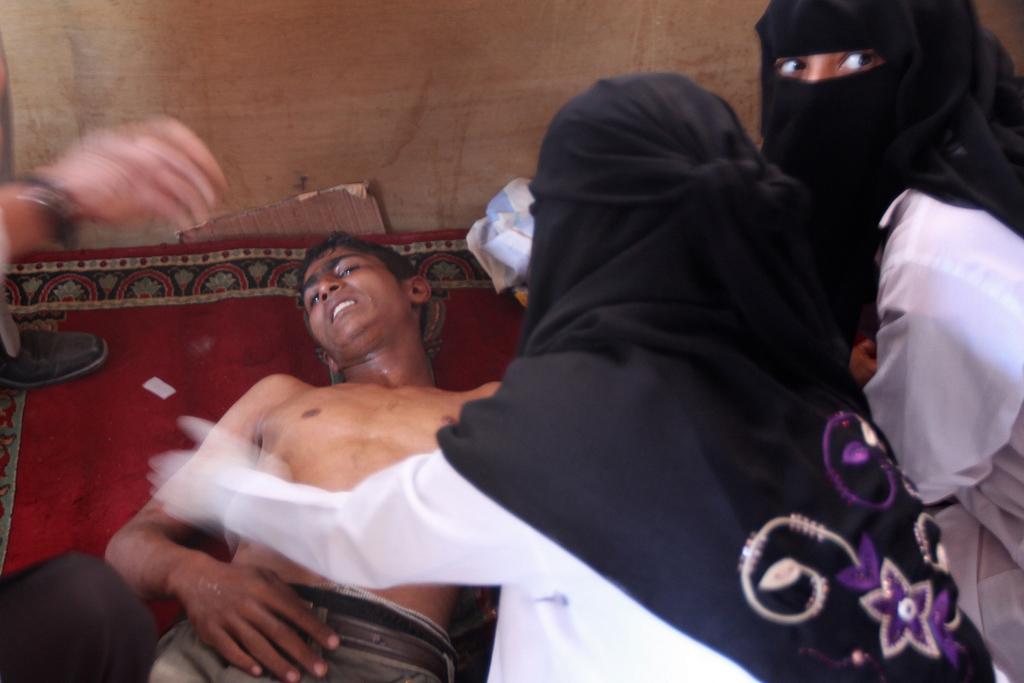State-sponsored killing in Yemen
A Yemeni boy suffering from the effects of tear gas is comforted by a relative upon his arrival for treatment at a makeshift hospital in Sanaa during clashes between government forces with pro-democracy demonstartors who were demanding the ouster of President Ali Abdullah Saleh on October 16, 2011.(MARWAN NAAMANI/AFP/Getty Images)
Two very different pictures of state-sponsored killing emerged from Yemen over the past few days.
The first, the assassination by remote controlled pilotless America drones of high value Al Qaeda targets. The other, the Kalashnikov-wielding troops loyal to a hugely unpopular president gunning down protestors in the streets of Sanaa and fighting with defectors.
Both attacks have raised the stakes in a nation reeling from political upheaval, economic collapse and a security vacuum.
The drone strikes late on Friday in Yemen’s remote southern Shabwa and Abyan provinces killed nine members of Al Qaeda in the Arabian Peninsula (AQAP), said Yemeni officials quoted by AP.
The dead included Rahman al-Awlaki, the 21-year-old son of Anwar al-Awlaki, the prominent American-Yemeni AQAP recruiter killed in a Sept. 30 strike. Also killed in the earlier drone strike was Pakistani-American Samir Khan, who travelled to Yemen in 2009 and founded AQAP’s monthly magazine, Inspire.
See: Holiday reading for terrorists
Read GlobalPost: Drone Wars: Attacks fuel anger in Yemen
"Everyone with interests in Yemen, including al-Qaida and the Americans, is raising the stakes at this time of uncertainty," analyst Abdul-Bari Taher told AP. "The Americans are wasting no time to try and eliminate the al-Qaida threat before the militants dig in deeper and cannot be easily dislodged."
The day after the successful drone strikes troops loyal to Saleh, long backed by the US as an ally in the War on Terror, killed at least 18 people after opening fire on some of the estimated 300,000 protesters who rallied in Sanaa, the largest demonstration in the capital in several months. Saleh’s troops also clashed with anti-regime tribesmen.
The story you just read is accessible and free to all because thousands of listeners and readers contribute to our nonprofit newsroom. We go deep to bring you the human-centered international reporting that you know you can trust. To do this work and to do it well, we rely on the support of our listeners. If you appreciated our coverage this year, if there was a story that made you pause or a song that moved you, would you consider making a gift to sustain our work through 2024 and beyond?
